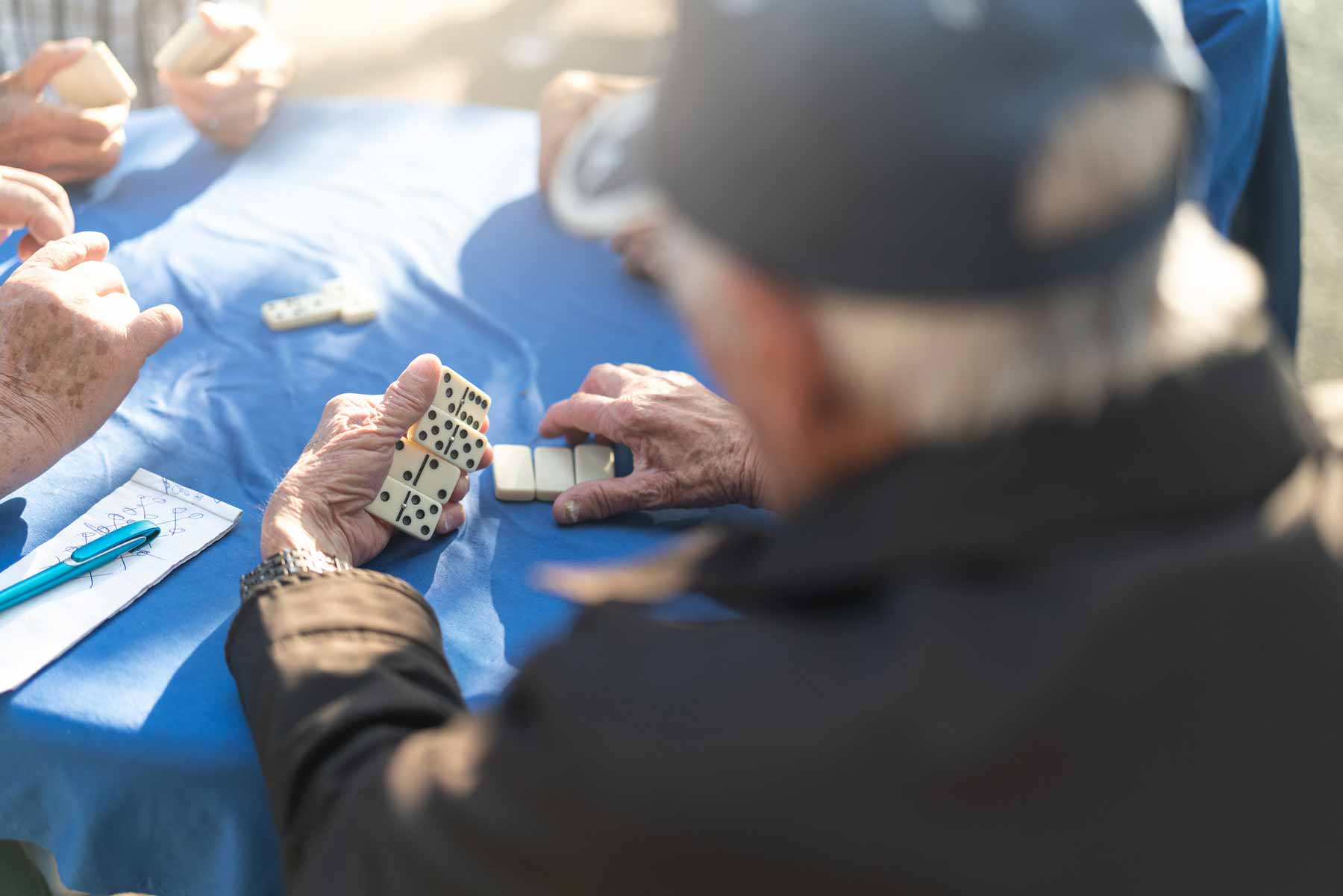Active Social Lives Help Dementia Patients, Caregivers Thrive
Cognitive difficulties, shame and the discomfort of family and friends limit opportunities to connect with others.

People with dementia and those who care for them should be screened for loneliness, so providers can find ways to keep them socially connected, according to experts at UC San Francisco and Harvard, who made the recommendations after finding that both groups experienced declines in social well-being as the disease progressed.
The patients, whose average age in the study was 80, had lost their social networks as their failing memories made conversation difficult, and their family and friends grew uncomfortable. Caregivers, whose average age was 67 and included spouses, adult children and others, became isolated as their responsibilities mounted. They also grieved the loss of their relationships with the patients when those relationships were good.
Prior research shows that meaningful activities can be enjoyed as the disease progresses.”
“Unmet social needs negatively impact quality of life, and that can lead to health outcomes like depression and cardiovascular disease, as well as high health-care use and early death,” said Ashwin Kotwal, MD, assistant professor of medicine in the UCSF Division of Geriatrics, and first author of the study.
“We know from previous research that older adults with higher levels of social isolation have more than double the odds of nursing home placement,” said Kotwal, who is also affiliated with the San Francisco VA Health Medical Center.
The study, which appears in The Gerontologist on March 18, 2024, included information from two dozen mainly male patients with dementia, and four dozen mainly female caregivers, some of whom were recently bereaved.
“Participating in support groups, in which patients and their caregivers can meet separately, may be low-stress places to socialize and get advice,” said Krista Harrison, PhD, of the UCSF Division of Geriatrics, Global Brain Health Institute and Philip R. Lee Institute for Health Policy Studies, the study’s senior author, noting that screenings take minutes and can be done by doctors, social workers or therapists.
“Clinicians should discuss options like community choirs that have been tailored for patients with dementia and their caregivers,” she said. “Prior research shows that meaningful activities can be enjoyed as the disease progresses. There may be simple ways of adapting activities, like switching attendance from a place of worship to participating in a service by Zoom with a small gathering at home.”
The interviews were conducted for two earlier studies: Dementia Palliative Care, led by Harrison, which examined patients with mild-to-moderate dementia and their caregivers; and Music and Dementia Caregiving, led by co-author Theresa Allison, MD, PhD, which looked at patients with any stage of dementia and their live-in caregivers, including those who had the assistance of professional caregivers.
Good relationships have the most to lose
A recent UCSF-led study of married couples, in which one partner had dementia, offered a fresh twist to the current study. The researchers found partners of people with dementia who were highly satisfied with their relationships experienced more loneliness than they had previously. But those in poor-quality relationships were not impacted by their partner’s dementia, despite having higher rates of depression and loneliness overall.
“People who are really invested in their marriage or partnership have more to lose when one partner develops dementia,” said Kotwal, the study’s senior author. “But those with lower marital quality have already lost the emotional support from the marriage that can be protective against loneliness and depression.”
Co-Authors: Theresa A. Allison, MD, PhD; Madina Halim, BA; Sarah B. Garrett, PhD; Carla M. Perissinotto; and Alexander K. Smith, MD, MPH, all of UCSF, and Christine S. Ritchie, MD, MSPH, of Harvard Medical School.
Funding: National Institute on Aging (K01AG059831, K23AG065438, P30AG044281, R01AG057751, K24AG068312, K23AG062613); the National Institutes of Health (KL2TR001870); the National Palliative Care Research Center and the Hellman Foundation.
Disclosures: Kotwal and Perissinotto report grants from Humana Inc. and research consulting fees from Papa Health outside the submitted work.